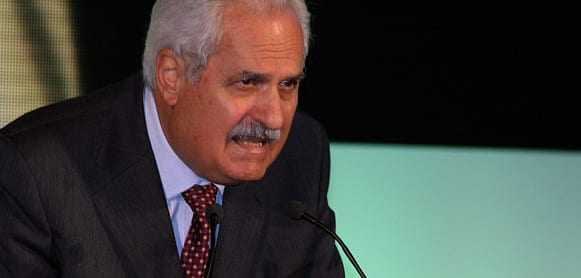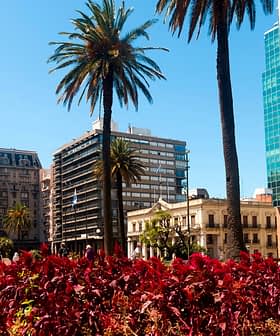
In his opening remarks Tuesday in Córdoba, Association 3E founder Claudio Peri said the fact that Interprofesional del Aceite de Oliva Español, the world’s largest olive oil group, had taken on his “tiny” olive oil quality initiative not just significant, but “a revolution.”
Organizing the annual meeting for the first time, Interprofessional demonstrated its considerable strength, attracting food industry professionals, scientists, educators and press from throughout the world to Córdoba this week for a vigorous program centered around the subject of premium olive oil production, evaluation, application and promotion.
The five-year traveling event has found a stunning stage in Córdoba, the beautiful city in Andalusia heralded for its rich cultural heritage and surrounded by rolling hills of sunflowers and olive groves. At the same time, Spanish olive oil, already the world leader in terms of olive oil production, has staked its claim to lead the charge for higher quality and shape its dialogue.
Spain has its reasons. Suffering from a prolonged pricing crisis, its massive olive oil sector is running out of options. Their tanks filled with the bounty of the second-biggest year ever in terms of olive oil production volume, producers here have been selling their hard-earned product for less than it cost to produce. Most blame an unbalanced and outdated distribution system that places too much influence in the hands of a few powerful distributors, and grocers who use olive oil as a loss leader to draw in customers with unsustainable prices.
Snubbed by the European Commission that has repeatedly rejected calls for reimbursements for keeping stock in tanks until pricing levels have a chance to improve, the region’s growers also face the expiration of the market-tilting subsidies and a leveling of the field with up-and-coming producers in Chile, Australia and the United States.
Taking on the Beyond Extra Virgin conference is part of a larger and sustained initiative to teach consumers to appreciate the differences between types of olive oil and pay more for higher quality characteristics. As the market giant, Spain has the cultural, scientific and industrial resources to take the leading role in conveying information about olive oil quality to consumers worldwide and it has the most to gain.
Speaking on the conference opening day the strategies director of the Culinary Institute of America, Greg Drescher, explained how his California campus creates value by highlighting premium olive oils with innovative presentations and pairings. Well-known Spanish chef Maria Jose San Roman demonstrated the preparation of her Tapas dishes, dripping with selected regional olive oils, that have made her Alicante restaurant famous.
Speakers on day two of the conference have been sharing research and opinions on consumer perceptions of olive oil quality characteristics and the definition of premium olive oil.








